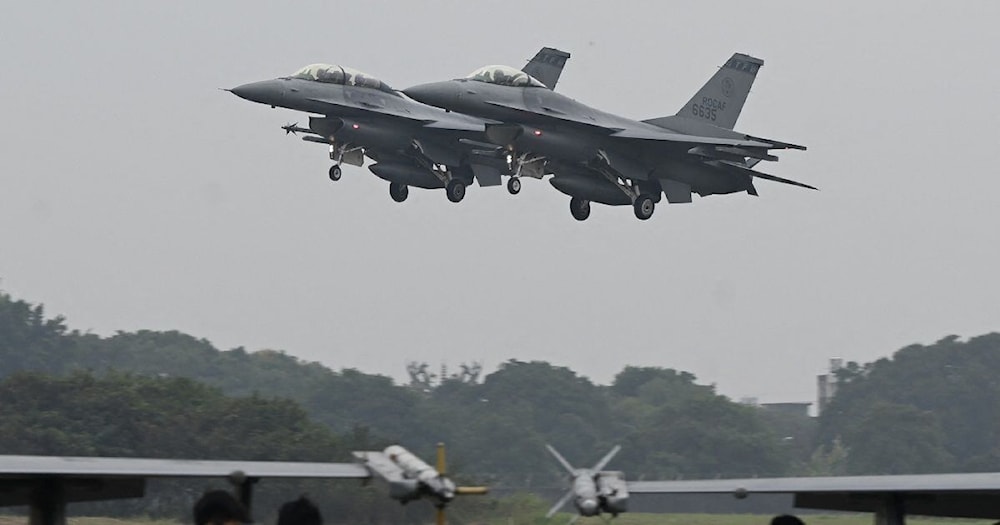US to flex fighter flights over Bosnia in message to Serbian entity
Joint military exercises between the US and Bosnia and Herzegovina will take place on the same day Republika Srpska will hold "national" holiday celebrations.
-

Two armed US F-16V fighters fly over an airforce base in southern Taiwan on January 5, 2022 (AFP)
Two F-16 fighters will conduct a flyover of Bosnia on Monday as part of joint training exercises to convey US support for the country's territorial integrity in the face of "secessionist activity" scheduled to be held by Bosnian Serb groups that evening, the US embassy in Sarajevo said in a statement.
The bilateral drills will be carried out with joint terminal attack controllers (JTAC) from the United States Army Special Forces (SOF) and Armed Forces of Bosnia and Herzegovina (AFBiH) in the Tuzla and Brcko region on the afternoon of January 8, the statement noted.
Read more: Germany tells Serbia to choose between EU and Russia
The statement came in reference to measures taken by Bosnia-Serb President Milorad Dodik that align with his attempts to rejoin Serbia. However, this move is considered to violate the US-brokered Dayton Agreement.
The agreement resulted in the partition of Bosnia into two entities: the Serb Republic (RS) and a Federation jointly governed by Croats and Bosniaks, with a central government of limited authority.
Bosnian Serbs are set to commence their self-proclaimed statehood day celebrations on Monday evening, which will also feature a parade by police and special forces on Tuesday.
"This bilateral training is an example of advanced military-to-military cooperation that contributes to peace and security in the Western Balkans, as well as demonstrates the United States’ commitment to ensuring the territorial integrity of Bosnia-Herzegovina in the face of anti-Dayton and secessionist activity," the embassy added.
"The United States has underscored that the Bosnia-Herzegovina Constitution provides no right of secession, and it will act if anyone tries to change this basic element of Dayton," the embassy statement continued.
Dodik signed into law two bills last July, which saw the suspension of the Bosnian Serb entity's recognition of rulings made by Bosnia's constitutional court.
Furthermore, the legislation involved bypassing or ignoring decisions made by then top international envoy to Bosnia, German diplomat Christian Schmidt, who lost UN backing following an intervention by Russia and Beijing.
Read more: China says never to forget US-led NATO 'barbaric crimes' in Yugoslavia

 2 Min Read
2 Min Read








